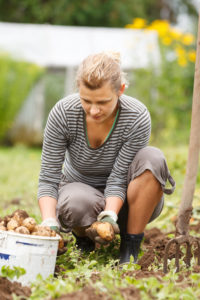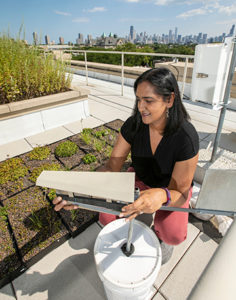 Ada Lovelace Day is collaborating with ecologists from University of York, UK, and DePaul University in Chicago, USA, to study fungi essential to soil health as part of a global collaboration that will also promote inclusivity and the retention of women and minorities in science.
Ada Lovelace Day is collaborating with ecologists from University of York, UK, and DePaul University in Chicago, USA, to study fungi essential to soil health as part of a global collaboration that will also promote inclusivity and the retention of women and minorities in science.
i-COMET, the International Collaboration on Mycorrhizal Ecological Traits, is looking for early career ecologists with an interest in fungal traits related to soil health to design a novel spore trap experiment and a standard operating procedure for identifying mycorrhizal traits. At the end of the workshop, participants will deploy the spore trap in their home country and share data back to the group, creating a data set with global relevance to soil health and with high impact. Very few data sets achieve this reach.
Mycorrhizal fungi are essential to soil health, playing a major role in soil quality, plants nutrient and water uptake, as well as protecting them from pests and pathogens. By investigating the dispersal rates of these spores, we can better understand if and how these fungi spread from area to area – the first step to rebuilding resilience in soils that have degraded due to environmental change, and subsequently strengthening food production and security.
Participants from around the world will attend a week-long workshop from 15th – 21st March 2020, in York, UK, where they will also take part in networking and team building exercises, given training in the suite of digital tools that will be used in the collaboration, as well as in mentoring. The i-COMET team will evaluate the effectiveness of this intervention, through survey and social network analysis, and disseminate what we learn from this to the wider STEM community, so that any group seeking to develop effective communication within diverse groups can use our findings and tools to foster sustainable communications.
Travel and accommodation costs for the workshop will be covered, and we encourage applications from potential participants from all countries. We are particularly keen to hear from women and those from the Global South. Workshop participants and a second group of non-workshop participants will be provided with access to a peer mentoring and knowledge sharing network. We will also be asking a third group of non-workshop participants to complete quarterly surveys as a control group for the study.
For more information visit our website and to apply, please complete the Expression of Interest.
ALD founder, Suw Charman-Anderson, has now become a Visiting Associate at York for the duration of the project and is working with Dr Thorunn Helgason, the project leader, and Dr Pen Holland from York, and Dr Bala Chaudhary from DePaul.
